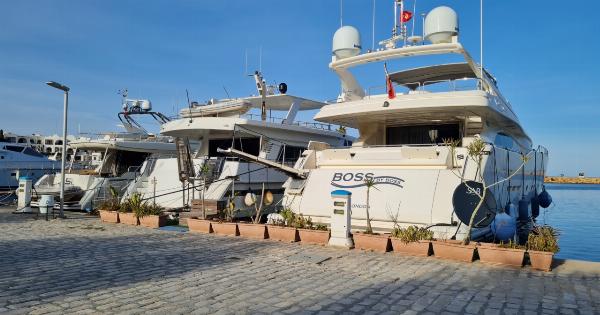Greece’s leading opposition party, SYRIZA, recently expressed its strong opposition to the construction of the proposed Makri Avenue project in Athens.
The controversial project, initiated by the ruling party, New Democracy, aims to improve transportation infrastructure and reduce traffic congestion in the capital city. However, SYRIZA argues that the project fails to prioritize sustainable and inclusive mobility solutions, and instead favors car-centric policies.
The Makri Avenue Project: An Overview
The Makri Avenue project, estimated to cost around €100 million, is aimed at expanding the existing road network and improving accessibility in Athens.
The plan involves widening the existing avenue to accommodate additional lanes, building new intersections and pedestrian walkways, and implementing a smart traffic management system.
The proponents of the project argue that it will significantly reduce traffic congestion in the city by improving traffic flow and optimizing travel times.
They also claim that the enhanced road infrastructure will attract foreign investment and boost economic growth in the region.
SYRIZA’s Critique: Lack of Sustainable Solutions
SYRIZA, on the other hand, criticizes the project for its narrow focus on improving car accessibility without adequately considering sustainable alternatives.
They argue that the funds allocated to the project could be better utilized to develop public transportation networks, promote active transportation options, and invest in a comprehensive cycling infrastructure.
The party believes that prioritizing car-centric policies not only perpetuates a reliance on fossil fuel consumption but also exacerbates air pollution and overall environmental degradation.
In contrast, SYRIZA advocates for a transition to greener modes of transportation, such as electric vehicles, as a means to combat climate change and create a healthier living environment for citizens.
Social Inclusion Concerns
In addition to the environmental implications, SYRIZA raises concerns about the social impact of the Makri Avenue project.
They argue that prioritizing car accessibility disproportionately benefits affluent individuals who can afford private vehicles, while neglecting the needs of low-income communities who rely on affordable and accessible public transportation options.
SYRIZA proposes that the funds earmarked for the Makri Avenue project should be redirected towards initiatives aimed at enhancing public transportation services, increasing their coverage, and reducing fares to make them more affordable for all residents. By doing so, they believe that the project will not only improve mobility but also contribute to social equity and reduce income disparities.
Supporters of the Makri Avenue Project
Despite the opposition from SYRIZA, the Makri Avenue project has garnered support from various quarters.
According to its proponents, the project is vital for addressing the worsening traffic situation in Athens, which has a detrimental impact on the quality of life for its residents and hampers economic productivity.
Supporters argue that the current lack of efficient transportation infrastructure in the city is a major barrier to attracting foreign investment and fostering economic growth.
They contend that improving road connectivity and reducing traffic congestion will create a more business-friendly environment and enhance the city’s appeal as a tourist destination.
Alternative Proposals
In response to SYRIZA’s critique, some experts have suggested alternative proposals that incorporate both sustainable mobility solutions and improvements in car accessibility.
One suggestion is the development of an integrated transportation plan that includes the establishment of dedicated bus lanes, tram extensions, and the expansion of the metro network.
This comprehensive approach aims to combine the advantages of private vehicle access with improved public transportation options to create a more holistic mobility system.
Furthermore, experts emphasize the importance of integrating cycling infrastructure into the city’s transportation network.
This includes the creation of dedicated cycling lanes, secure bicycle parking facilities, and initiatives to promote cycling as a viable mode of transportation. By prioritizing active transportation, cities like Amsterdam and Copenhagen have successfully reduced car dependence and improved public health outcomes.
The Way Forward
As the debate surrounding the Makri Avenue project continues, it becomes evident that a nuanced and balanced approach is necessary to address the concerns raised by both supporters and opponents of the project.
While improving car accessibility can have economic benefits and ease road congestion, it should not be pursued at the expense of sustainable and inclusive mobility solutions.
Prioritizing greener modes of transportation, enhancing public transportation services, and investing in infrastructure for active transportation can create a more equitable and environmentally friendly urban environment.
In order to ensure a comprehensive and effective transportation strategy, stakeholders from both political and civil society must actively engage in dialogue, weighing the pros and cons of each proposal to arrive at a consensus that best serves the needs of the community.































